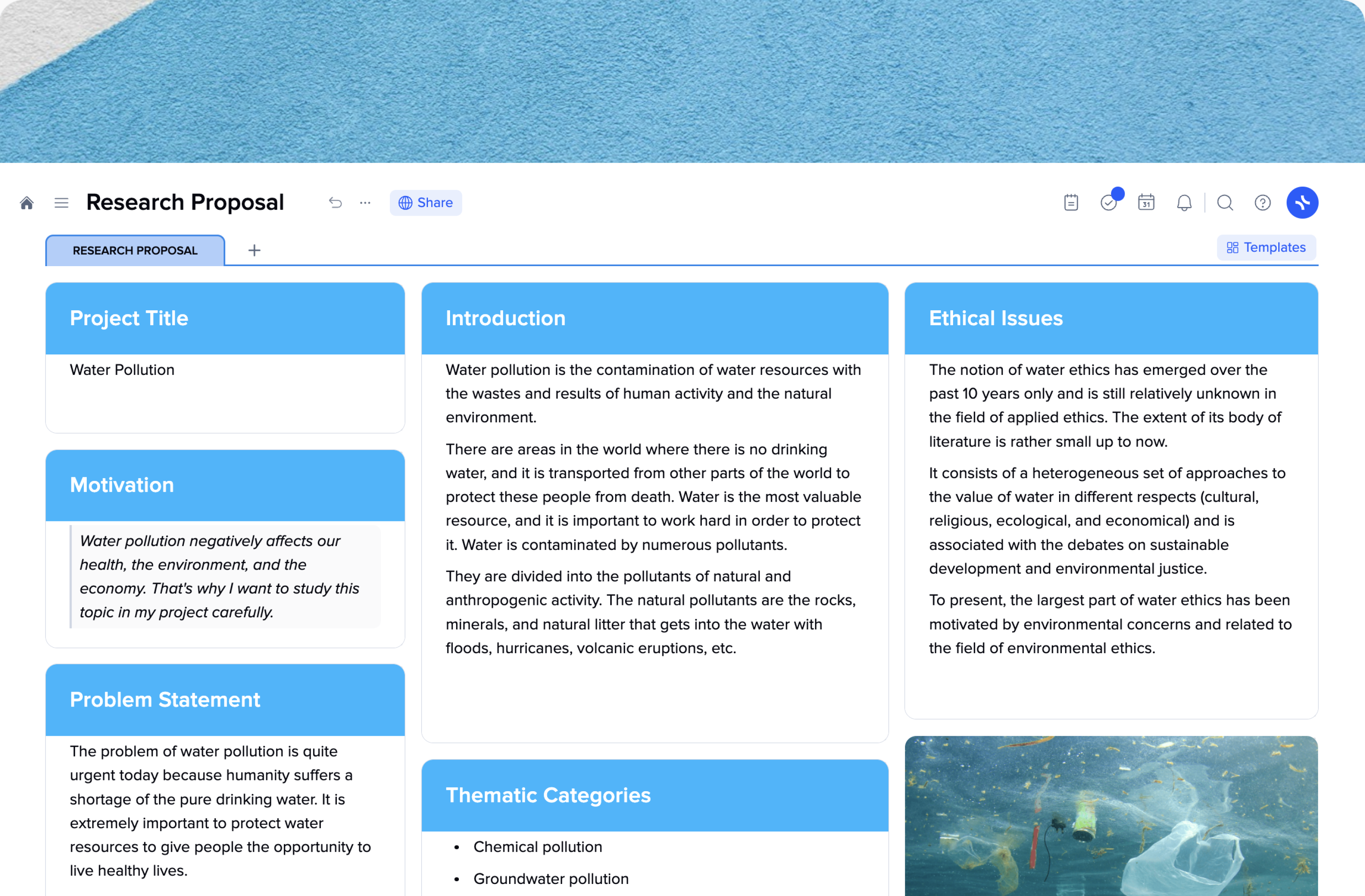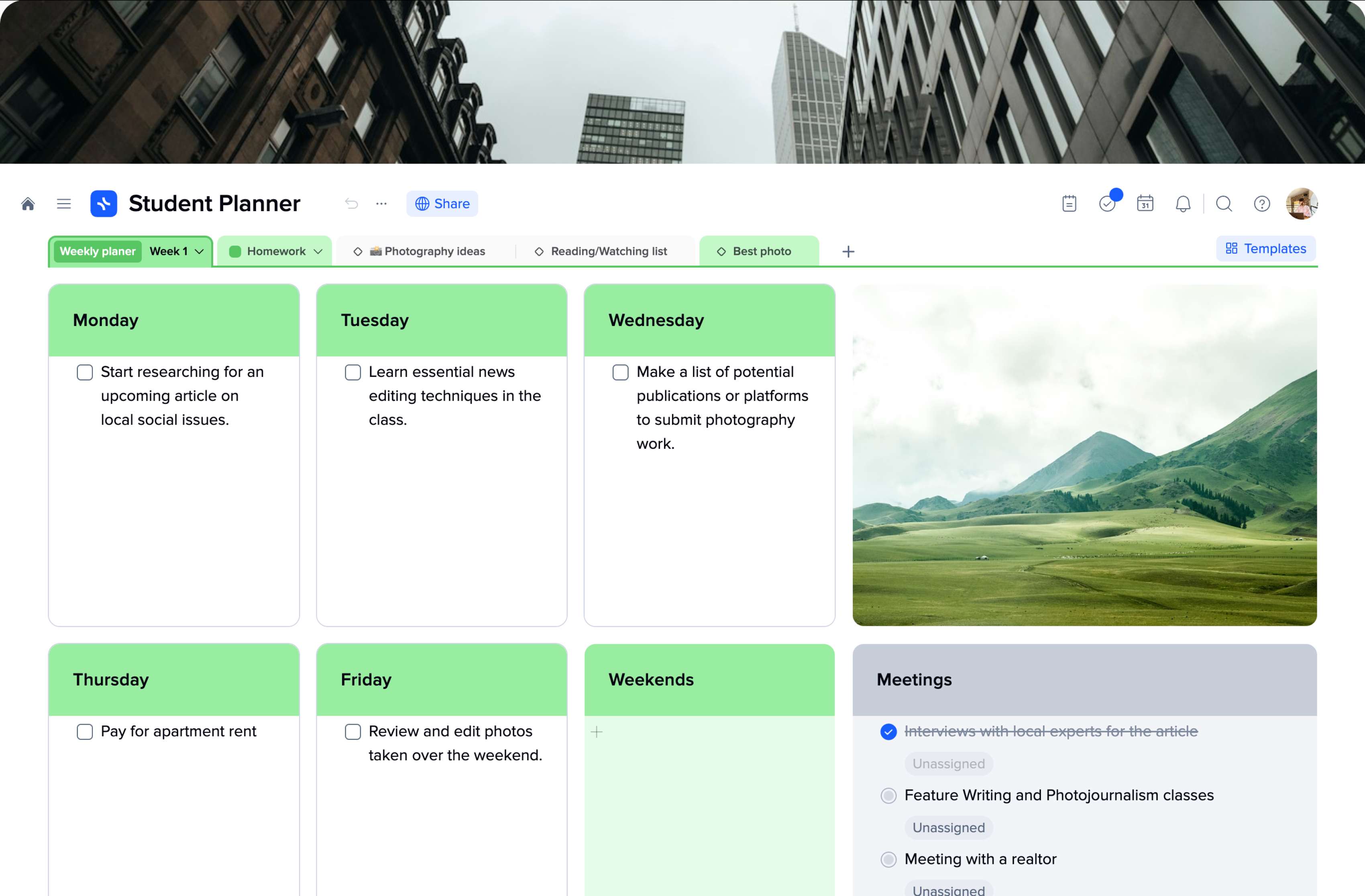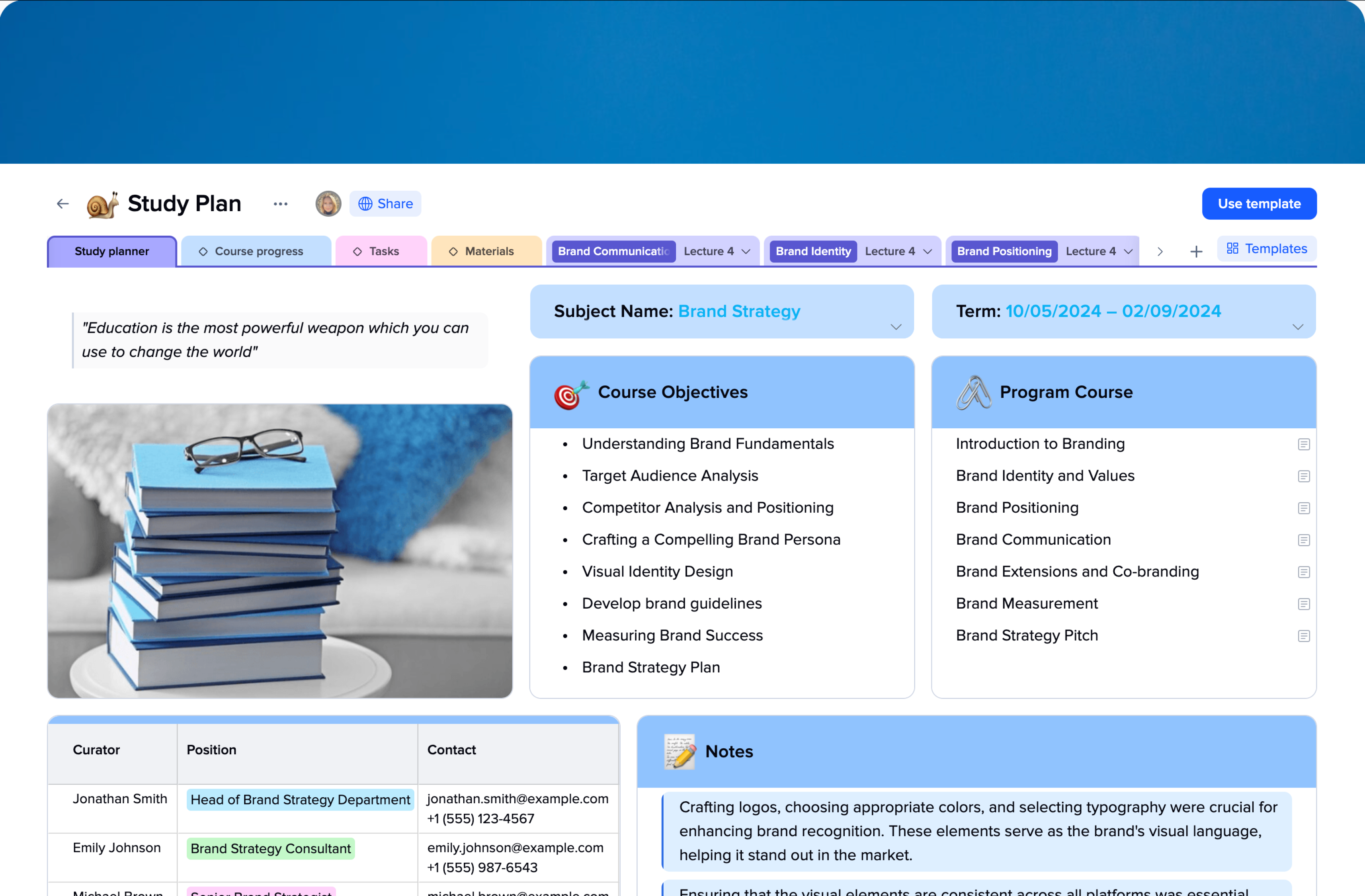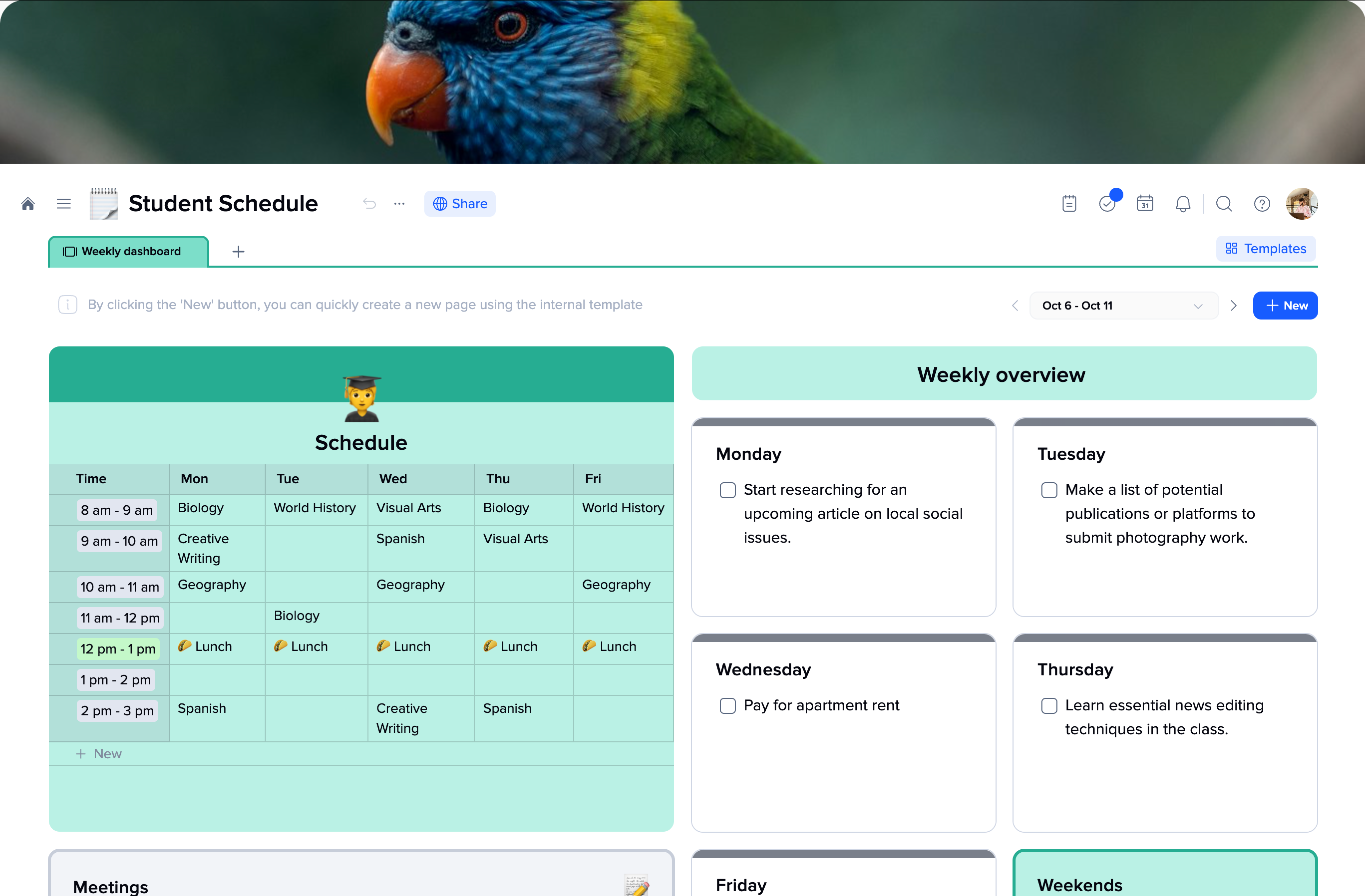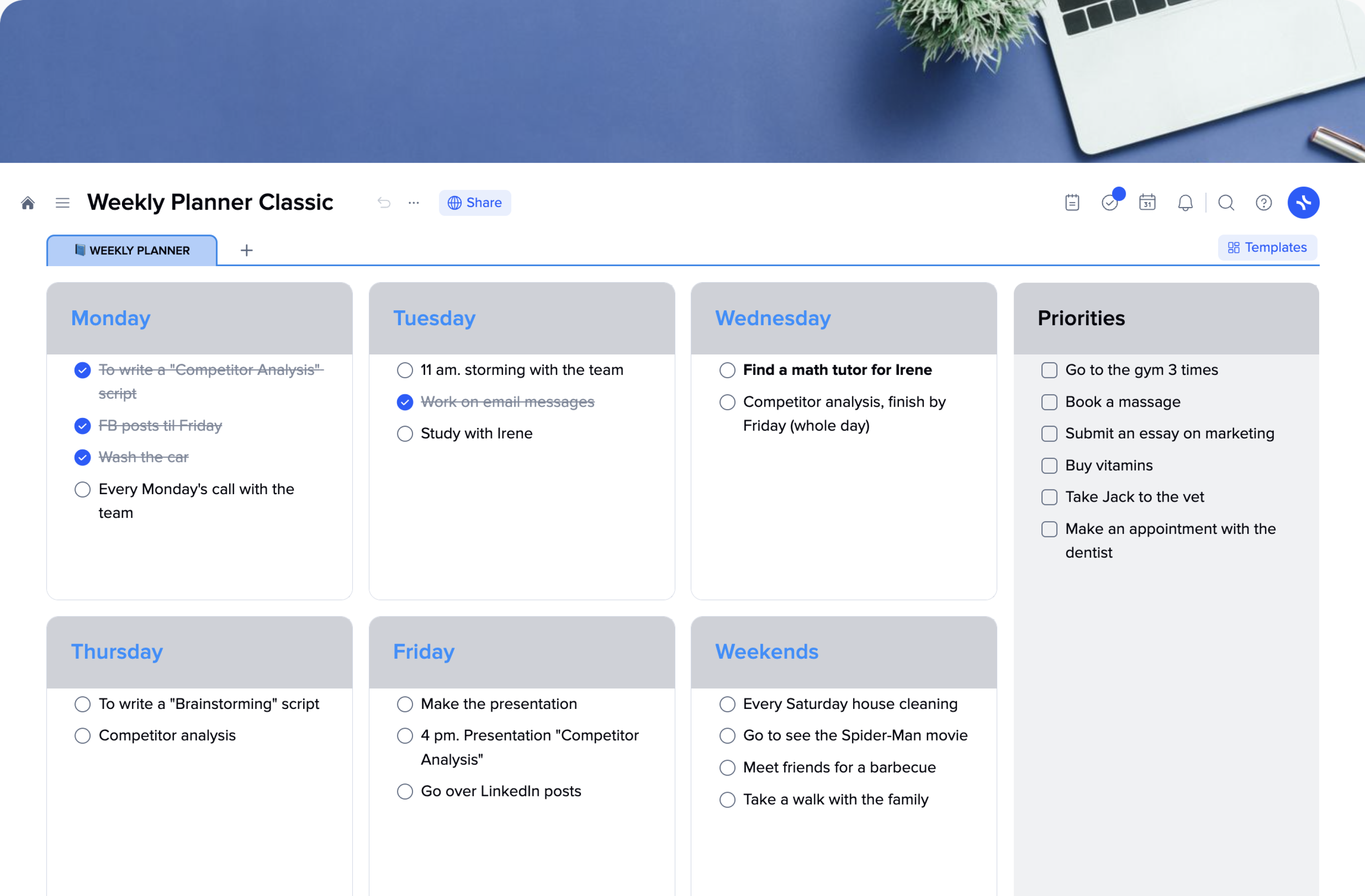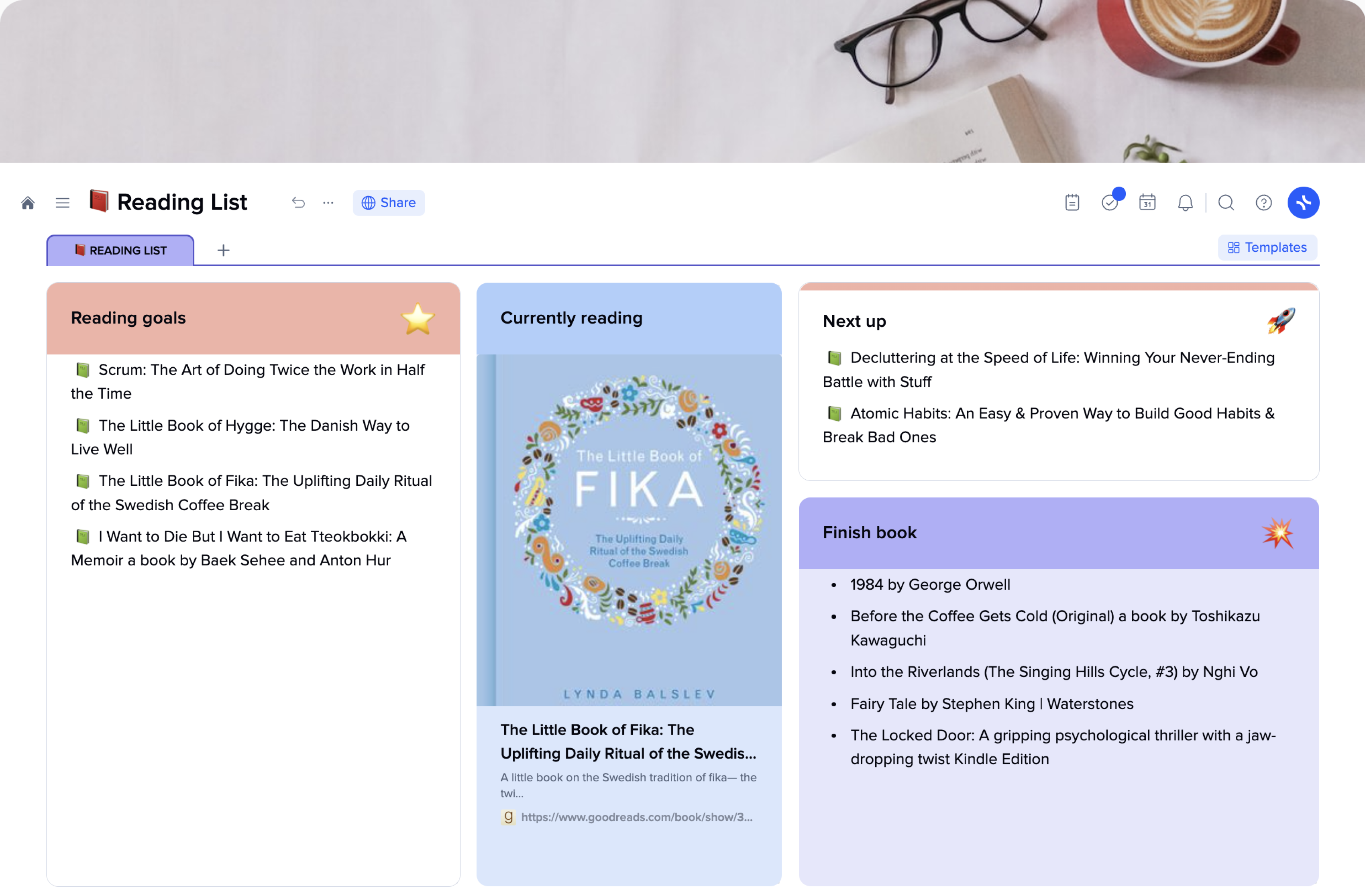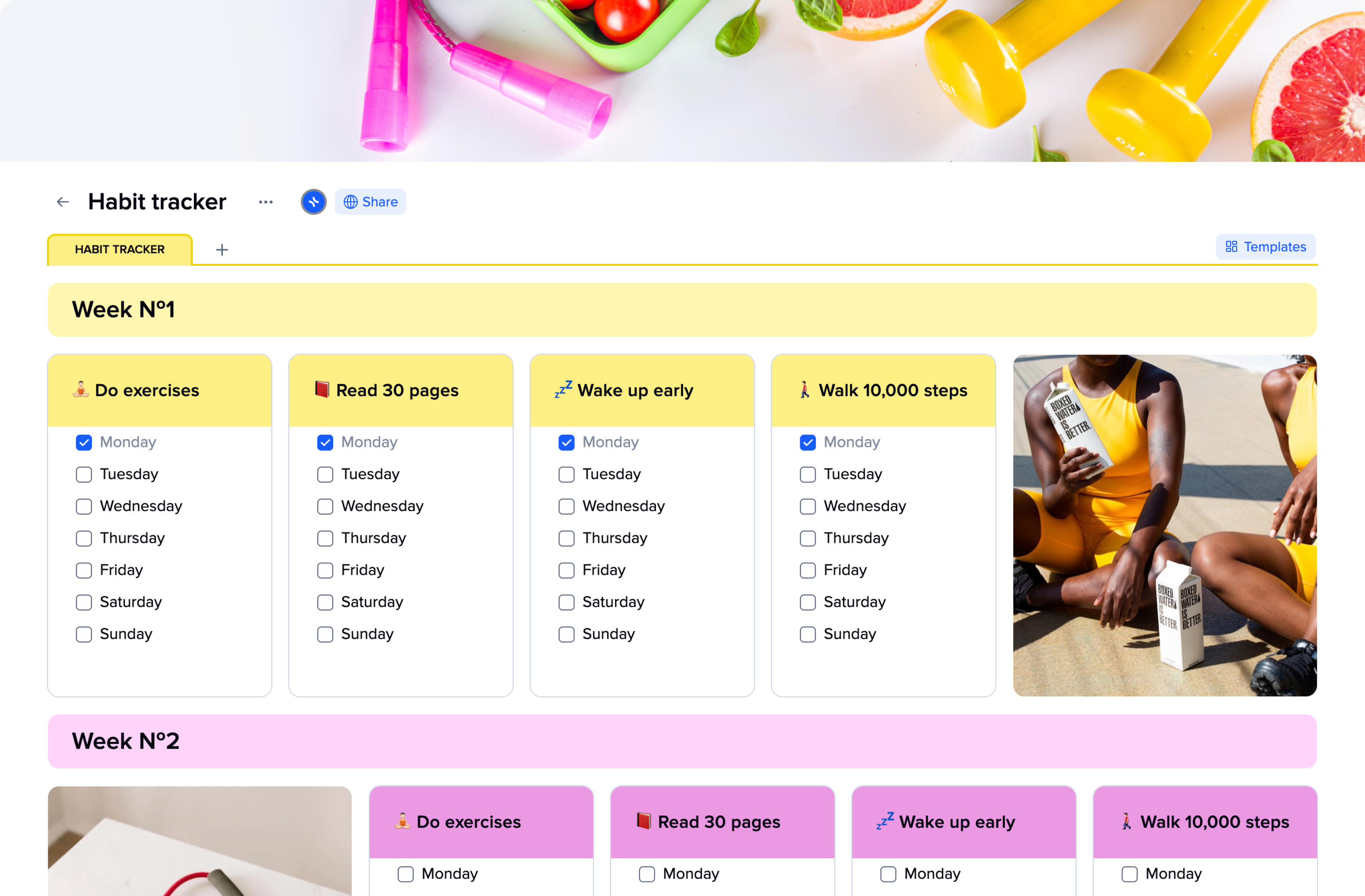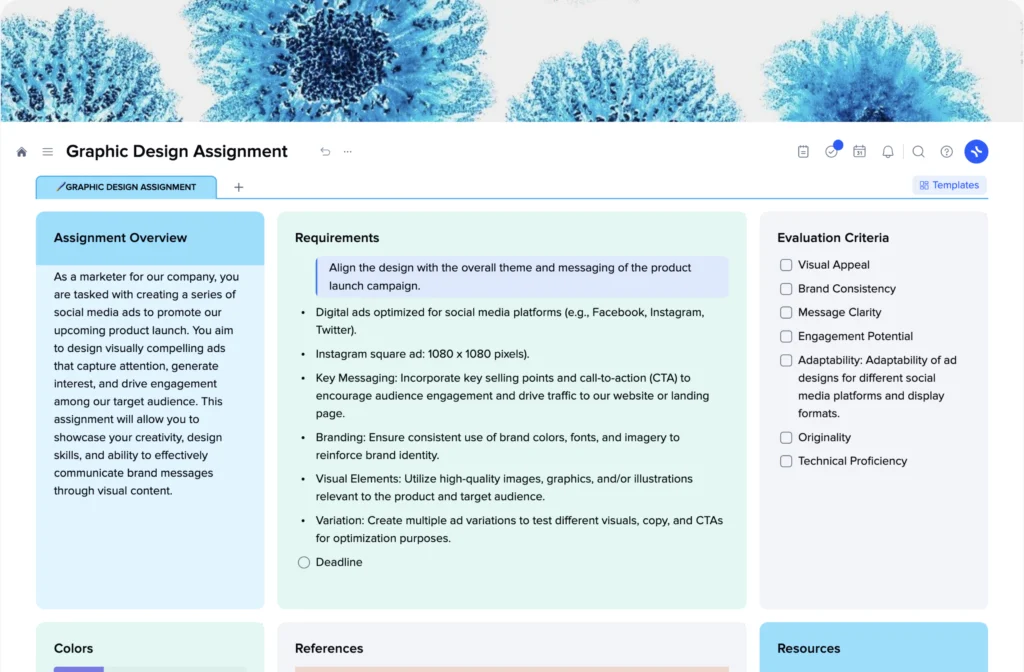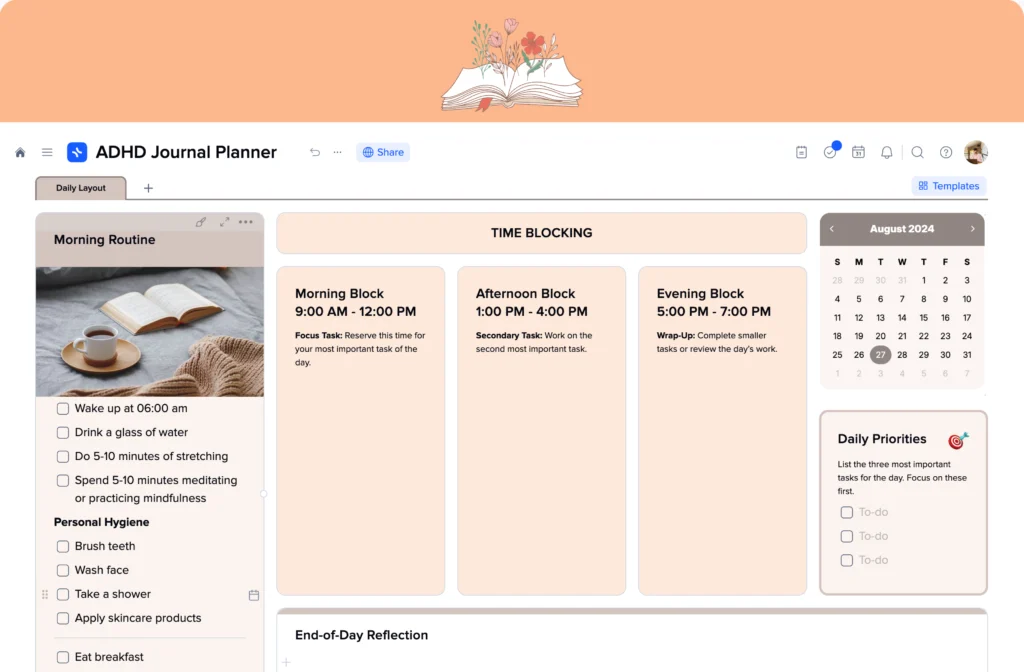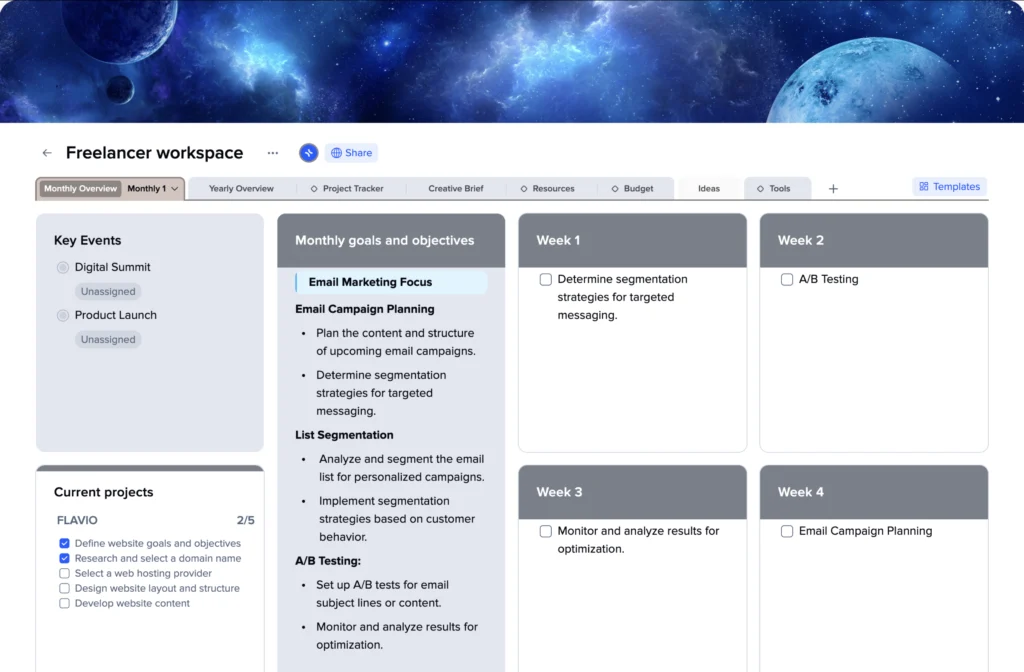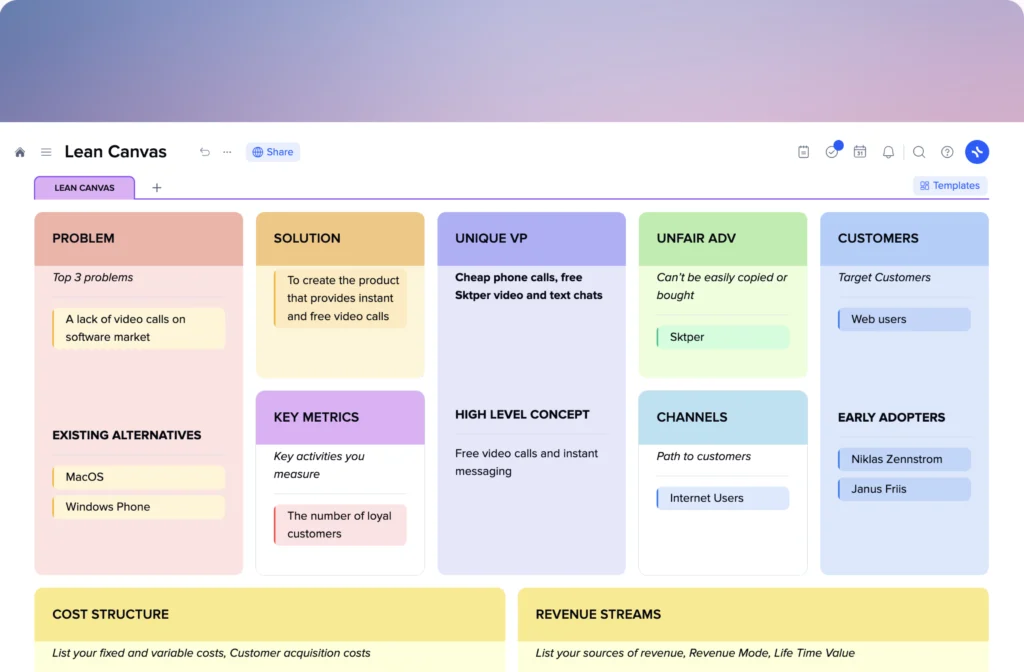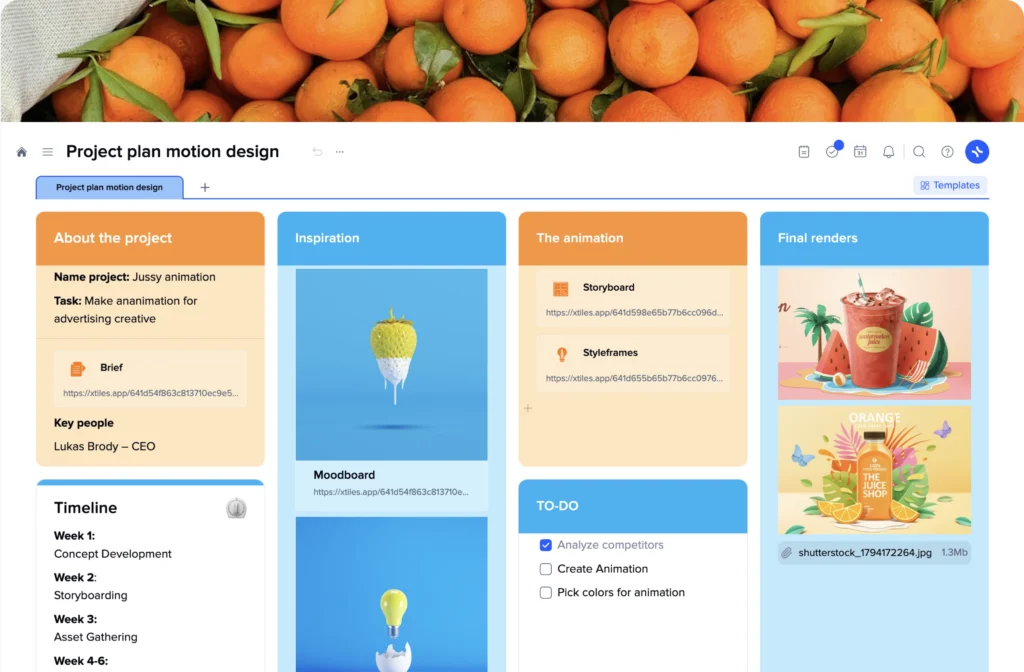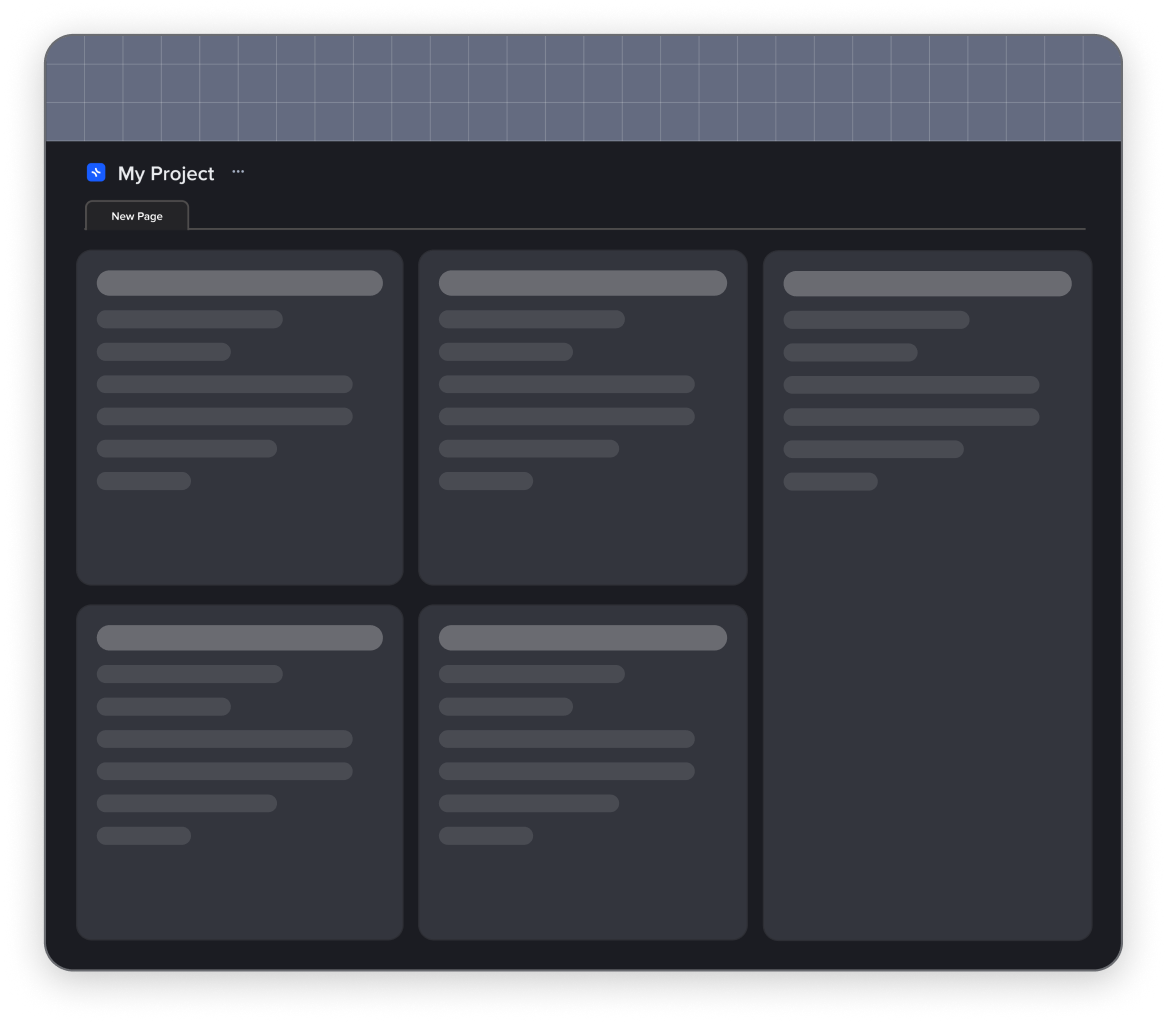How to write an effective research proposal using the xTiles Research Proposal Template?
A comprehensive research proposal, whether for a dissertation or thesis, should cover three crucial elements: the “what,” the “why,” and the “how” to help you meet your goal – persuade people that it’s worth trying and has potential.
Let’s dive deeper into each of these aspects by going step-by-step through all the elements:
Project title
Similar to your dissertation or thesis, a research proposal typically begins with a title page providing important information about your project. This creates a cohesive and professional document that establishes the foundation for your research project.
It is essential not to commence writing your proposal until you have a clear topic in mind; otherwise, your proposal may lack coherence and suffer as a consequence.
A proposed title is where you state the title of your research project. It should accurately reflect the essence and focus of your study. Every word is important because you’re limited. So, think carefully about it or ask for advice.
Remember that your topic must also be useful and generate value, and you must effectively convey this value in your proposal.
Finally, don’t forget to include your full name as the researcher or author of the proposal. This helps identify you as the primary investigator of the proposed research.
Motivation
To break the ice, continue by explaining why you’re interested in this particular project topic. Even though your research proposal showcases it, a short explanation of your motivation will leave no room for ambiguity and misunderstanding.
Defining a research topic is not sufficient; you must justify originality. What sets it apart? What gap fills in the existing body of literature? Merely rehashing existing research is unlikely to gain approval; your topic needs to offer something fresh.
Be honest with yourself and your “audience,” explaining what is so attractive about your topic.
Introduction
The introduction section of a research proposal serves as the initial pitch for your project, setting the foundation for the rest of the proposal. It is crucial to concisely communicate what you intend to accomplish and why it is significant.
Within your introduction, it is essential to:
- Introduce your topic:
Clearly present the subject matter of your research, providing a concise overview of the area of study you will be exploring.
- Provide necessary background and context:
Offer relevant background information to ensure readers understand your research’s broader context. This may include key theories, concepts, or previous studies related to your topic.
- Outline your problem statement and research questions:
Clearly state the problem or gap in knowledge that your research aims to address. Present specific research questions that will guide your investigation and help fill the identified gap.
To effectively craft your introduction, consider incorporating the following information:
- Identify potential stakeholders:
Highlight the individuals or groups who may have an interest in your research topic, such as scientists, other scholars, or industry professionals.
- Assess existing knowledge:
Discuss the current state of knowledge in the field and indicate what is already known about your research topic and what still needs to be clarified.
- Justify the research:
Convey why your proposed research is worth pursuing by outlining its potential benefits, such as advancing scientific understanding, informing policy decisions, or addressing practical challenges.
By effectively structuring and addressing these components in your introduction, you will provide a compelling rationale for your research proposal, capturing the interest and support of your audience.
Ethical issues
Describing the ethical issues associated with the investigation is crucial to demonstrate a strong awareness and dedication to conducting responsible and ethically sound research.
Depending on your topic and field of investigation, the ethical issues of your proposal will differ. If your topic is theoretical, you need to explain why investigating it is important from an ethical point of view.
However, if your research includes participants, everything becomes much more complicated. Here are some guidelines for effectively addressing ethical considerations within your research proposal if there are people involved:
- Research ethics review:
Clarify that your research proposal will undergo an ethics review process to ensure compliance with ethical guidelines and regulations.
- Informed consent:
Discuss how you will obtain informed consent from participants or subjects involved in your study.
- Confidentiality and privacy:
Explain the measures you will implement to protect the confidentiality and privacy of participants.
- Data collection and handling:
Detail the methods and procedures for data collection while ensuring participants’ privacy and confidentiality.
- Potential risks and benefits:
Discuss the potential risks participants may face and acknowledge your strategies for mitigating and managing these risks.
Problem statement
Originality alone is not the sole criterion for your research proposal. Once you have established its uniqueness, you must also explain why your proposed topic holds significance. In other words, what value will it contribute to the world if your research objectives are achieved?
A problem statement in a research proposal must concisely describe the specific issue or gap in knowledge that your study aims to address. It should clearly define the problem, provide relevant background context, justify its importance, and be framed in a way that allows for measurable objectives or research questions.
Writing a clear and concise problem statement is crucial for establishing the foundation of your research proposal and highlighting the significance of your study.
Objectives
Writing clear and well-defined objectives in a research proposal is crucial for guiding your study and demonstrating the intended outcomes. Well-crafted objectives act as a roadmap, guiding your research and allowing for the evaluation of project success. They focus your study and provide a basis for assessing research outcomes.
Here are some effective guidelines:
- Be specific:
Clearly state what you aim to achieve, focusing on specific aspects of your study.
- Use measurable criteria:
Define your objectives using quantifiable terms or indicators to assess success and outcomes.
- Be realistic:
Set attainable objectives within your research project’s resources, time, and limitations of your research project.
- Align with the problem statement:
Ensure your objectives directly address the identified research gap or problem statement.
- Consider relevance:
Demonstrate how achieving your objectives contributes to knowledge advancement, practical solutions, or theoretical contributions in your field.
- Provide clarity:
Write objectives concisely using action verbs, avoiding ambiguity, and using precise language.
Approach
Having an excellent and valuable research topic is important, but unfortunately, it doesn’t solve all the problems independently. Without addressing the practical aspects, it will be challenging to gain approval. On the contrary, you might turn your subject useless without a concise and precise description and explanation of your chosen methodology.
In other words, writing your research proposal, you need to answer next questions:
- How will you conduct your research? (i.e., your methodology)
- Is your chosen research methodology suitable for achieving your research objectives?
- Can you manage your approach within the given constraints (e.g., time, budget)?
It’s important to remember that when writing a research proposal, you should provide a high-level overview of your research methodology because, at this stage, you simply don’t have time to detail every aspect of your approach.
Try to address these significant questions in your research proposal:
- What approach will you take? (for example, qualitative, quantitative, or mixed-method approach). Remember that it must be suitable for your expertise and research.
- What sampling strategy will you adopt?
- How will you collect data? (e.g., interviews, surveys, etc.)
- What data analysis methods will you employ?
- What potential limitations may arise from your methodology?
Ultimately, it is crucial to consider the practical aspects of your research and have a basic methodological plan before writing your proposal.
Thematic Categories
When writing thematic categories in a research proposal, it is important to clearly identify and define the key themes or categories that will guide your data analysis and organization.
Here are the guidelines to help you effectively incorporate thematic categories into your research proposal, ensuring a clear and structured approach to analyzing and interpreting data within the identified themes:
- Determine your research focus by identifying the main areas or topics of interest.
- Review relevant literature to identify common themes or concepts that emerge.
- Create an initial list of thematic categories that capture the key aspects of your research topic.
- Justify the selected categories, explaining their relevance and alignment with your objectives.
Timetable
Setting a realistic timetable in a research proposal is crucial for several reasons. Firstly, it ensures the feasibility of your project within the given timeframe, considering available resources and potential challenges.
Secondly, it helps plan and organize research activities, allowing for a systematic approach. A well-defined timetable enhances accountability, enabling progress tracking and early issue identification. Additionally, it aids in efficient resource allocation and instills confidence in reviewers and stakeholders, increasing the proposal’s credibility.
References
A comprehensive literature review serves as the foundation for your project, showcasing that it is rooted in existing knowledge or theory. It also establishes that your work goes beyond replication by utilizing previous research as a springboard for your own contributions.
Within this section, you should mention resources and other scientists’ works your research will be based on to clarify your approach.
